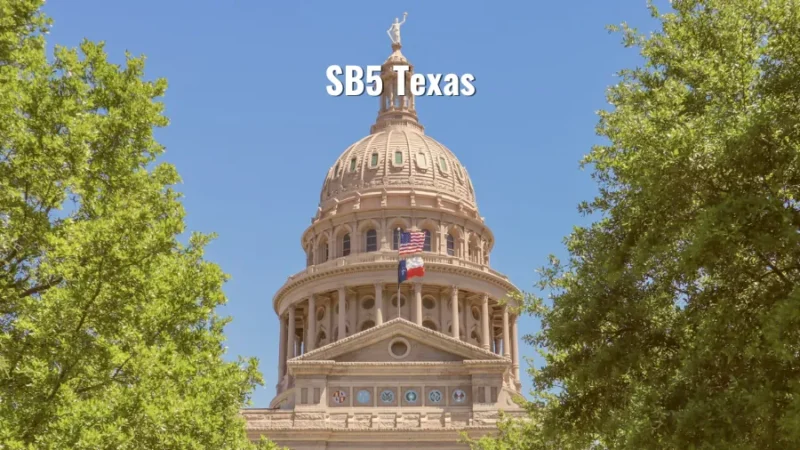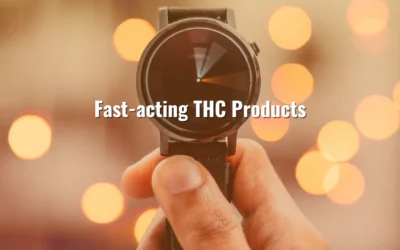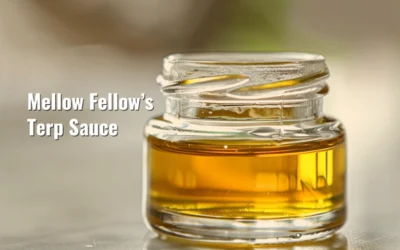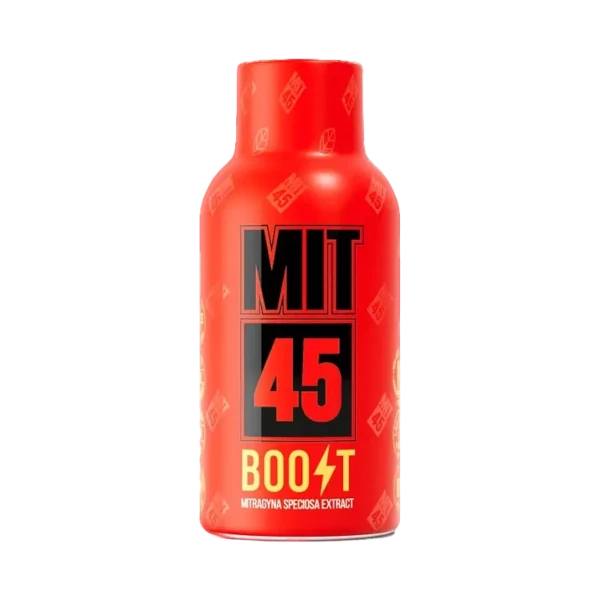No, we’re not re-running an earlier blog. No, we didn’t get the bill number wrong. And no, you’re not imagining things. The SB5 is real, and it’s looking a whole lot like SB3, that same bill that was vetoed a couple of months ago.
What’s happening now isn’t a glitch in the system. It’s a second attempt at a statewide ban on THC products, including any that contain a detectable amount of any cannabinoid that might provide the slightest psychoactive experience. If that sounds familiar, it should. We’ve been here before.
SB5 Teas is the Senate’s way of saying they’re not giving up on this ban, no matter what the governor said last time. So here we are again. Same conversation, slightly different title, same very real consequences for the hemp market, small businesses, and customers across Texas.
Blog Summary:
A lot is going on beneath the surface of SB5. That’s why in this blog, we’ll walk you through:
- What SB5 would ban
- How a single phrase in the bill could reshape enforcement entirely
- Why the Texas Senate is doubling down
- What the House might, or might not, do next
- What the Governor wants
- What it means for you
- What a smarter approach to regulation could look like

Table of Contents:
- What SB5 Texas Says
- Why the Language Matters
- Where Things Stand Right Now
- What the Governor Wants
- What We’re Watching
- What a Real Path Forward Could Look Like
What SB5 Texas Says
If passed, SB5 would prohibit the sale of any product that contains a detectable amount of an intoxicating cannabinoid, with two exceptions: CBD and CBG, both of which are non-psychoactive and widely available in wellness products. Every other compound (say Delta 8 THC, Delta 9 THC, Delta 10 THC, THC-O, THCP, THC-A, and others) would be outlawed, regardless of format.
That includes:
- Edibles
- Vapes
- Beverages
- Concentrates
- Oils
- Tinctures
- Pre-rolls
- Capsules
- And in many cases, flower itself
Even microdosed gummies or low-percentage blends would be caught in the crossfire. As you surely realized, this isn’t the regulatory bill the governor requested. It’s not about licensing or age restrictions or testing standards. It’s a ban. Full stop.
To be clear, SB5 does not touch CBD or CBG. It does not change Texas’ Compassionate Use Program. It doesn’t stop hemp cultivation, at least not yet. But for everyone operating legally within the current definition of federally compliant hemp-derived THC, this bill would effectively wipe the slate clean. And not in a good way.
Why the Language Matters
One of the most concerning aspects of SB5 is the use of the phrase “detectable amount” instead of any measurable standard (like a milligram cap or a percentage limit). That might sound technical, but the consequences are big.
Right now, Texas follows the federal hemp definition: no more than 0.3% Delta-9 THC by dry weight. That’s a clear, lab-verifiable threshold. It lets producers, retailers, and regulators all operate on the same page. But “detectable amount”? That opens the door to a completely different kind of enforcement.
Under SB5, a product doesn’t have to be intoxicating. It just has to show any trace of THC on a lab test, regardless of whether the amount would do anything to a human, or even register perceptibly.
Different labs use different testing methods. Detection limits vary. Some machines are more sensitive than others. And the bill doesn’t clarify any of that. So, instead of enforcing based on effect, Texas could start enforcing based on equipment sensitivity. And that feels like chaos.
It’s especially dangerous in a legal gray zone like THCA flower. As it stands, raw THCA is non-intoxicating and federally compliant. Since combustion happens after purchase, most current laws don’t treat it as inherently illegal. With SB5’s “detectable amount” clause, though, even that nuance disappears. If THCA is present, it’s banned.
Where Things Stand Right Now
As of today, SB5 has cleared the Texas Senate with a 21–8 vote. That happened on Friday, July 30, during the current special legislative session. It now heads to the House, where things could get… complicated.
The House has filed its own version of the bill (HB5) sponsored by Rep. Gary VanDeaver. It’s a direct companion to SB5. Same intent. Same language. Same sweeping ban.
But unlike the Senate, the House hasn’t moved yet. No hearings have been scheduled. No debate has started. And considering what happened the last time a THC ban hit this chamber, some lawmakers may be waiting to see how the politics shake out before taking a public stance.
So what can happen from here? The House could debate and amend HB5, softening it or reshaping it entirely. It could stall, especially if leadership senses another veto coming. Or it could pass in its current form, sending it straight to Governor Abbott, who would have to decide whether to veto again, sign it, or let it become law without a signature.
Meanwhile, the hemp industry is in limbo. Retailers are watching inventory that’s legal today potentially become illegal overnight. Farmers, processors, and brands don’t know what regulations or bans they’ll be operating under by the end of the month.
And you? Stuck in the middle. Still buying. Still using. Still wondering if the products you rely on will be pulled without warning. No one’s panicking yet. But no one’s comfortable either.
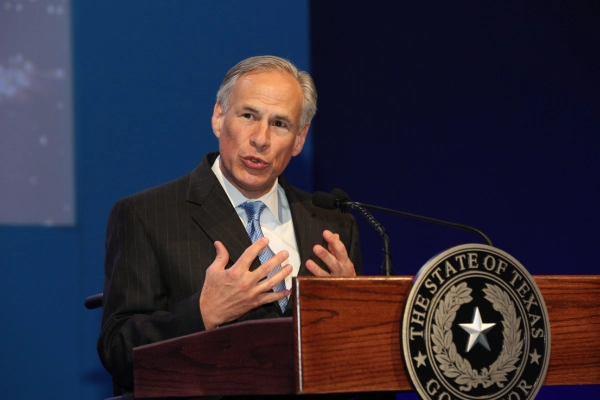
What the Governor Wants
One of the most important dynamics in all of this isn’t between cannabis retailers and lawmakers. It’s between the Legislature and Governor Greg Abbott.
When Abbott vetoed SB3 earlier this summer, he didn’t do it because he’s pro-THC. He didn’t do it because he wants unregulated products flooding gas stations. And he definitely didn’t do it because he agrees with the more progressive cannabis bills floating around the House. He vetoed SB3 because it was too extreme. And because it lacked the kind of legal foundation that could hold up in court.
In his words, Texas needs a regulatory framework that protects public health, restricts access to minors, enforces standards on testing and packaging, aligns with federal law, and still leaves the door open for legitimate businesses to operate.
He compared it to the alcohol model: regulated, taxed, ID-verified, and locally controlled. And he explicitly asked the Legislature to deliver a bill that reflects those principles during this special session. SB5 does the opposite. It ignores every part of the governor’s veto letter and brings back a total ban with no regulatory infrastructure behind it.
This creates a peculiar political setup: a Republican-majority Senate pushing a full-on ban, while a Republican governor requests something more structured and enforceable. Meanwhile, the House sits in the middle, watching to see whether to follow Perry and Patrick’s lead. Or listen to Abbott’s call for regulation.
And let’s not forget: Abbott holds the pen. If SB5 makes it through both chambers in its current form, it’ll land right back on his desk. Same bill, same problems, same likely outcome. Unless something changes in the House.
So, will lawmakers adjust the bill to align with Abbott’s vision? Will they dig in and force another veto? Or will they try to run out the clock, hoping the governor decides not to act at all? No one knows yet. But for now, it’s clear that the governor isn’t asking for a ban. He’s asking for a fix.
What We’re Watching
We’re tracking SB5 closely. Just like we did with SB3. At this point, no one can say exactly how this will play out. The House hasn’t moved yet, the special session is halfway over, and the governor hasn’t changed his position. But we’ve seen enough to know how fast things can shift.
We’re staying alert. If you shop with us, you’ll be the first to know what’s happening. Not just through headlines, but with clear breakdowns of what’s legal, what’s not, and what options are still on the table.
In the meantime:
- Contact your state representative. Especially if they sit on key committees or haven’t taken a public stance. Ask them to oppose a full ban and support a path toward regulation.
- Share your experience. Lawmakers need to hear from veterans, patients, parents, and business owners. Stories matter more than slogans.
- Support businesses that are operating responsibly. If the state’s going to rewrite the rules, make sure you’re buying from places that have followed them all along.
What a Real Path Forward Could Look Like
Most people in our space (retailers, growers, even everyday consumers) aren’t asking for chaos. We’re asking for clarity. We’re asking for consistency. And we’re more than willing to work within a real, enforceable regulatory framework.
So, what could that look like? Well, age restrictions that are enforced make sense. No one serious about this industry wants to sell THC to minors. Age gating should be standard. And penalties for ignoring it should be harsh. No debate.
When it comes to licensing, zoning, and traceability, only authorized, tax-compliant retailers should be able to sell hemp-derived products. Track who’s selling what and where. All of that is reasonable.
In regard to testing and labeling requirements, we need safe products, accurately dosed, and clearly labeled. Let consumers know what’s in what they’re buying. And hold producers accountable if they lie.
Not all products are equally potent. Banning everything with a trace of THCA or Delta 8 THC feels like lazy policymaking. We can, and should, draw smarter lines.
If the concern is safety, build a system that actually finds and penalizes unsafe operators. Right now, bad actors thrive in the gaps. A ban doesn’t close those gaps. It just moves them. If lawmakers are serious about protecting people, this could be a path forward. Anything less is just political theater with real-world consequences.
